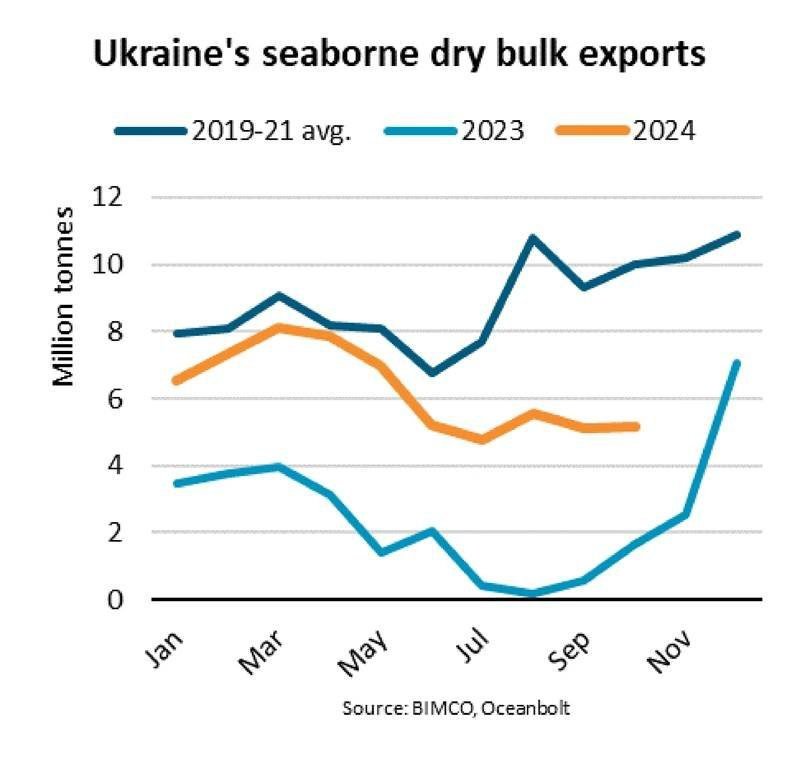Since September 2024, Russian missiles have targeted five merchant ships in Ukrainian ports or waters, marking the first attacks on such vessels since November 2023. These incidents pose a threat to 1% of the world’s dry bulk exports if safety measures are not improved. While the price of war risk insurance has risen, the impact on exported volumes has been limited so far, according to Filipe Gouveia, a Shipping Analyst at BIMCO.
Throughout 2024, Ukraine has been exporting dry bulk cargoes from its ports in Odesa through a coastal corridor, following the end of a UN-brokered agreement in July 2023. This new corridor has led to a threefold increase in dry bulk shipments compared to the previous year, enabling higher grain and iron ore exports. However, total shipments remain 27% lower than before the conflict began.
The coastal corridor has played a vital role in maintaining low global food prices, with Ukraine being a significant grain exporter accounting for 7% of global seaborne grain exports. Any disruption to Ukraine’s seaborne exports would not only impact food prices but also affect the dry bulk market. The panamax and handysize ship segments, which transport two-thirds of Ukrainian cargoes, would be most affected by disruptions, particularly in the Mediterranean and Asia routes.
Looking ahead to 2025, Gouveia anticipates a decline in Ukraine’s dry bulk exports due to an expected 19% decrease in maize yields. This reduction in exports is likely to contribute to a stagnation in global grain shipments for the year. Despite the potential challenges ahead, the global reliance on Ukrainian grains remains significant, making the security of maritime trade in the region a critical concern for the industry.
Share it now






